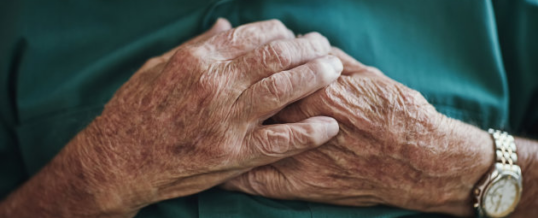
The Act Respecting End-of-Life Care was sold to us as "first and foremost, a law of access to quality palliative care throughout the territory, at the patient's choice.” When it was adopted – not so long ago – its promoters insisted that it only legalized "medical aid in dying" (euthanasia) as an "exceptional measure for exceptional cases."
However it is now obvious that, almost four years since the day of its adoption and close to three years after its coming into effect, the public authorities have essentially concentrated their efforts on this famous "exceptional measure", giving the impression that the act of killing people to end their suffering – still very controversial – was a cool and trendy way of ending one’s life.
Recently, faced with this regrettable reality, several personalities in the health care community have publicly denounced the fact that, ultimately, the Act Respecting End-of-Life Care does not fulfill its main promise: to guarantee to all of the approximately 60,000 Quebecers who die each year the right to receive quality palliative care if it is needed.
Thus, after the heartfelt appeal of Quebec's two major palliative care associations denouncing the lack of efforts and resources to make quality palliative care accessible in all Quebec nursing homes (CHSLDs), or that of physicians who claimed that some patients are turning to physician-assisted suicide for lack of palliative care options, the Collège des médecins du Québec (CMQ) has also expressed its concerns by highlighting the disorderly application of the Act Respecting End-of-Life Care.
In a letter sent to Dr. Gaétan Barrette, the current Minister of Health, the Collège des médecins mentions that, in some cases, “patients, unable to benefit from [clearly identified palliative care], may have had no choice but to ask for [euthanasia] to end their days...".
Even worse, the College reports a disturbing fact that suggests that the exceptional measure may be imposing itself as a supreme: “The College has been told that patients seeking medical aid in dying were becoming the priority for access to available resources (...) to the detriment of other end-of-life patients with similar needs.”
In other words, those who choose euthanasia are entitled to the best support available in the last moments of their lives, while many others – the vast majority – do not receive the care promised to them in the law. Is that really the ideal of justice that we pursue as a society? Or is it for fear of making tomorrow’s headlines that the medical personnel are rushing to satisfy patients who choose euthanasia? Are they trying to avoid being publicly singled out for not immediately providing the act that has been promoted as the new way to die 2.0?
Meanwhile, instead of strengthening palliative care, the current situation threatens its very sustainability, as the College of Physicians also observes, reporting that “doctors are leaving and not being replaced in many palliative care settings, compromising access to such care.”
In conclusion, it is time to step back and reflect on the entirety of the commitments made in the Act Respecting End-of-Life Care. It is also time to listen carefully to what palliative care professionals have to propose as ways to make our end of life comfortable: after all, they are the experts. And it is time to claim the right that has been legally granted to us as citizens to have access to such care. Any delay in that respect abandons citizens to death without the support of the comfort care they were promised.
On the eve of the provincial elections in October, now is the time for the Quebec population to mobilize and demand that the future government finally listen to the vast majority of the electorate who wish to live with dignity until the end of their lives with the help of quality palliative care.
ShareJUN
2018
